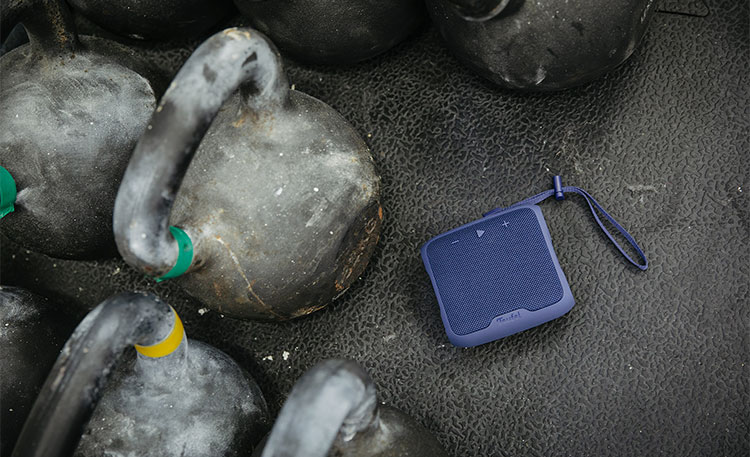When our favourite tune plays on the radio we automatically feel a bit better. Music can help us focus, dream, calm down and help bring us into an emotional state. Also when we really want to hit a workout hard, upbeat music can help us feel energised and motivated. Actually, music affects the way in which we do sports. In this article, we’re going to be introducing a few exciting facts when it comes to workouts and music.
All to play for: with music, everything becomes a bit easier
Whether body pump, Zumba, or during your morning jog, listening to the right music can help you complete your exercise and push you to do more. But why is that? When we listen to our favourite tracks things become easier and you automatically feel motivated. Meaning you concentrate less on the struggle of your task but instead slip into a sporty flow.
But are you abler or does it just seem so? Whether it’s a placebo effect or actually a case where that the right music can indeed make you perform better, is a question many in the sporting industry have been asking themselves again and again.
Slow beats to relax, quick tempo tunes to workout to
Proven: Music has a positive effect on the body and the motivation and not just by sport. Relaxing sounds help us relax and turn off, which often prefered when doing relaxing sports like yoga. However, on the sports bike, it’s a different story. We like to listen to upbeat pop songs to help us peddle a bit faster. By the way, it doesn’t even matter if you like the music or not, because here it’s all about the beats per minute (BPM) of the songs that match your own tempo and rhythm. And if this is the case, it is also secondary what the song is about in terms of content.

When warming up, faster songs are enough to prepare us for the workout. When it gets to the limit and we really want to work out and sweat, fast songs with hard basses and a high BPM count are good. If it is calmer afterwards, breathing and heart rate will also calm down again. Then also slower songs are the perfect fit.
Tip: Headphone cables are rather annoying for many sports. With wireless Bluetooth headphones like the MOVE BT, you can be flexible in any position. If you like to play sports at home, streaming speakers are ideal and you can choose the right playlist.
Positive effects are there, but subjectively
Back to the question of whether music has an influence on athletic performance. For amateur athletes, music can help them overcome fatigue, last longer and possibly achieve better results. In professional sports, where top results are the goal, many athletes concentrate inwardly and completely on their body signals to deliver in training or competition. Musical accompaniment then plays almost no role at this level.

Studies show good results
Various experiments and test groups deal with the question of the extent to which music influences athletic performance. A study conducted by Texas Tech University confirmed that listening to music during training can help you reach peak performance. The medical experts divided the test subjects into two groups; one group played music while exercising, the other group performed without acoustic support. Here too, the group scored slightly better with music.

Music during sports? Just try it out!
Of course, not everyone likes to listen to music during training. Many prefer to concentrate fully on the exercises and sequences and thus find peace or test their performance limits. Music can also be a hindrance in some cases, for example, if you get too distracted or the songs do not match the tempo and you cannot find a good rhythm for yourself.
If you want to see if your sports behavior changes and even improves with music, here are some crisp playlists that will make you sweat:
Tip: More the type to watch sports while you work out? Check out this article to find out where to watch the NHL in Europe.
Beats for body pump
Playlist for Jogging
Vibes for your next yoga session
Playlist for spinning
If you still need good music providers for your smartphone, then take a look at our text Music to go: Music player apps for mobile phones. So tie your running shoes, turn up the music and enjoy the movement. Have fun sweating!
 Opens in new tab
Opens in new tab


Leave a Reply